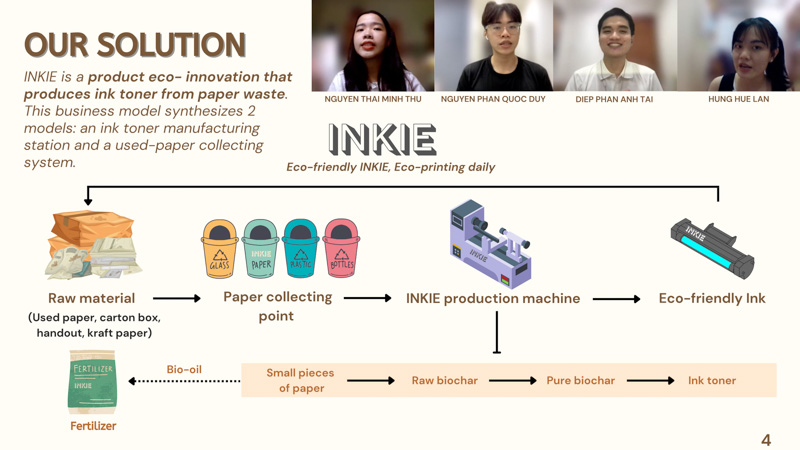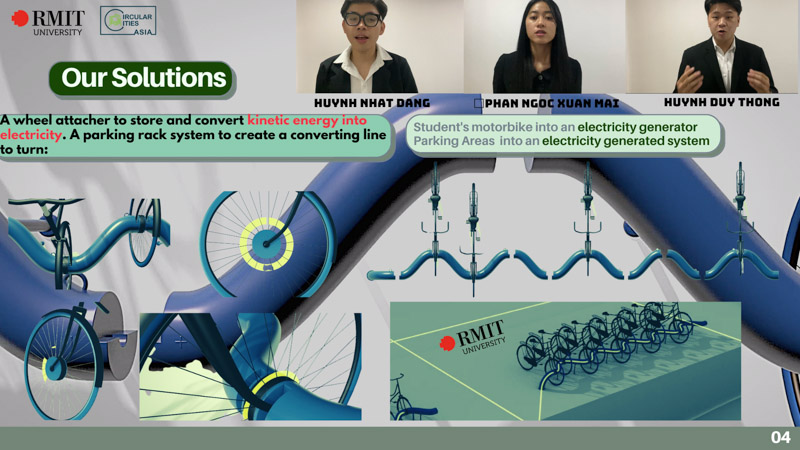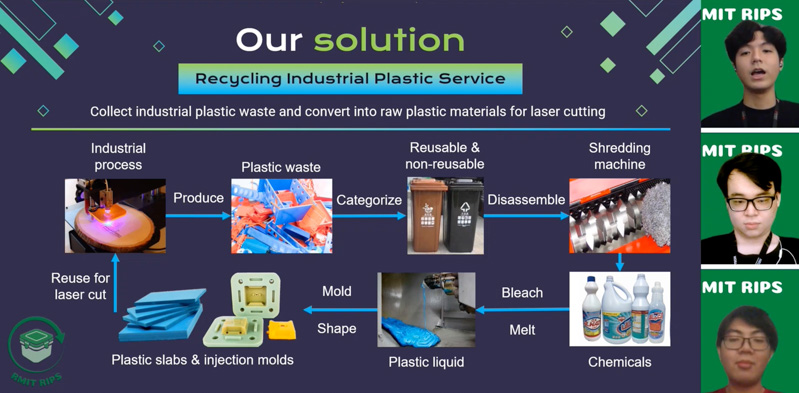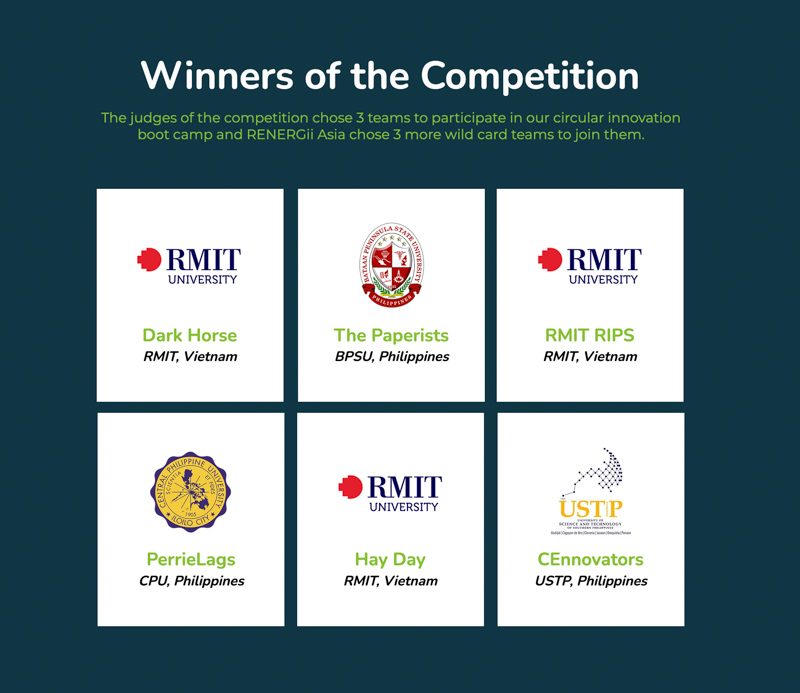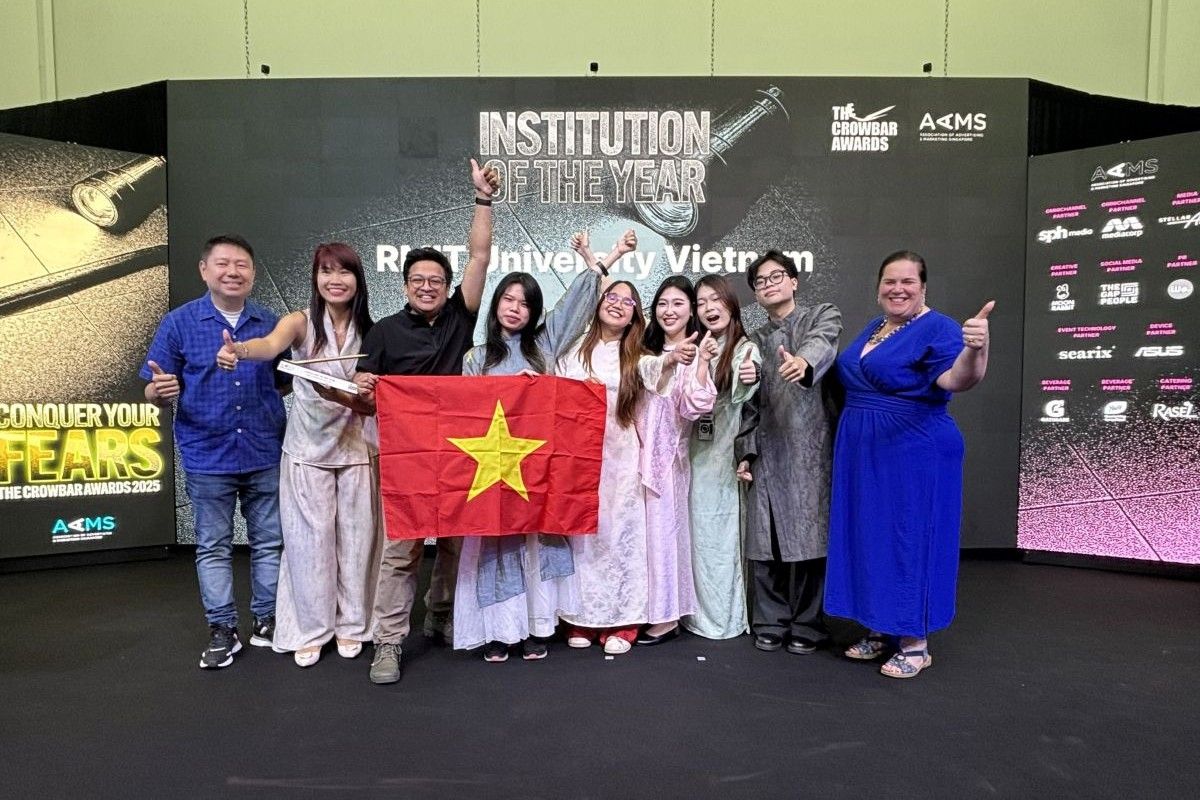Recycling plastic waste and utilising it for laser cutting
Can plastic waste and laser printing be ‘friends’ and help each other out? A recycling idea proposed by three Bachelor of Engineering (Software Engineering) (Honours) students Doan Luong Hoang, Thai Manh Phi and Pham Thanh Nam gives redundant plastic waste on campus another meaningful life through being a recycle material for laser cutting and printing.
“A large amount of plastic waste is generated on campus from leftover plastic pieces from 3D printing projects and old/faulty models,” Hoang said.
“These plastics are not reused or recycled, but instead, thrown in the garbage.
“Whereas the cost of materials for 3D printing and laser cutting are quite costly and many students (including Software Engineering students like us) use these machines a lot.”
The team introduces a service that recycles industrial plastic waste on campus and converts them into raw materials used in laser cutting.
“We will build / purchase a machine that can melt and process plastic, some molds / extruders for shaping the melted plastic and other stuff like chemicals and gears,” Hoang explained on how it works.
“The plastic waste is categorised into reusable and non-reusable.
“Reusable plastic is disassembled into pieces and put in the shredding entrance of the machine, the chemicals, bleach and right type of mold or extruder will be added right after that.
“The plastic is shredded, melted, and processed with chemicals, then it will come out into the mold for shaping. The plastic is cooled down and ready to use.”
The team believed their idea with help the University save a lot of money on buying new materials for these processes.
“Most of the materials are imported and very costly,” Hoang said.
“It also can boost the University’s reputation and create a circular mindset for its students.”

